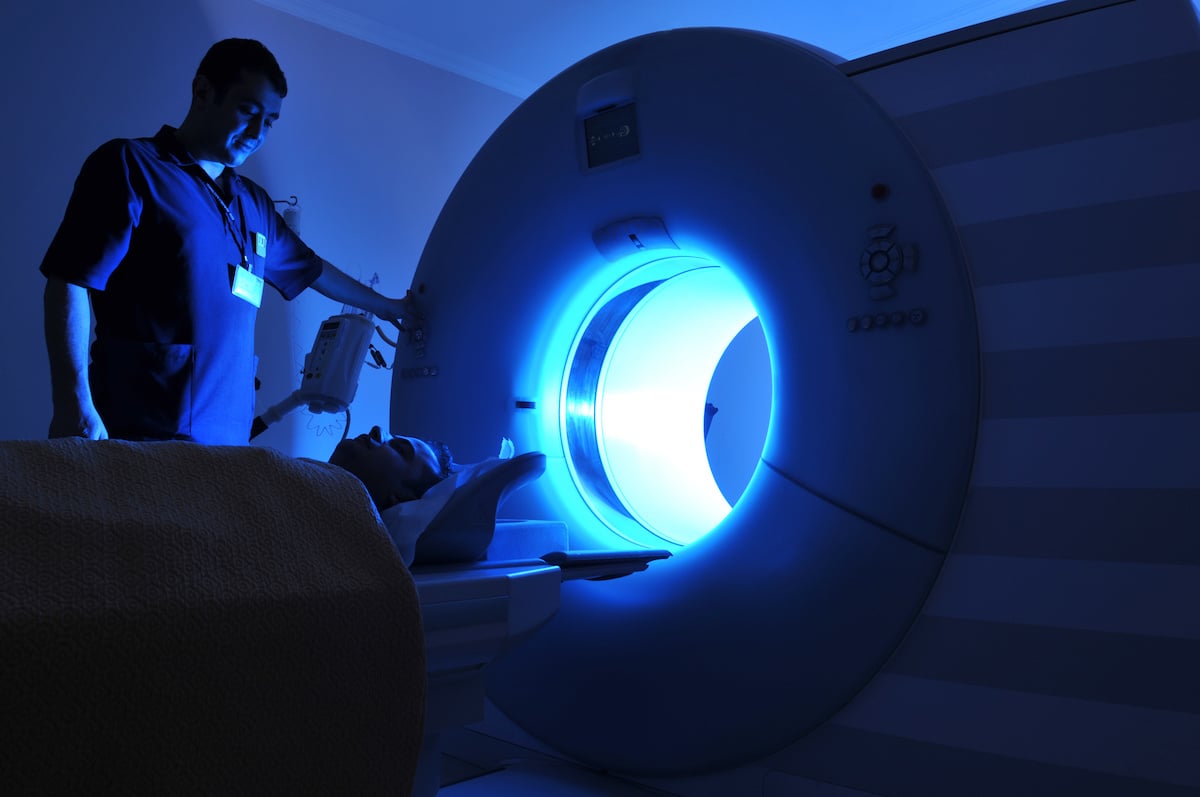Topics: Medical Billing, Radiation Oncology

Radiation oncology billing can be a complex experience. Many radiation oncologists struggle with the billing process, including the billing and coding guidelines that ensure a smooth reimbursement process. Besides the complexity, radiation oncologists may feel as if they’re under more scrutiny since their specialty typically affords higher reimbursement rates.
By being familiar with common radiation oncology CPT codes and utilizing these medical billing tips, your radiation oncology practice can take advantage of a streamlined billing process - with minimal delays or denials so you can achieve the revenue cycle management you need to succeed!
Quick Links
- Why Accurate & Efficient Medical Billing is Essential for Radiation Oncology Practices
- Billing and Coding Guidelines for Radiation Oncology
- Radiation Oncology Medical Billing Tips
- Improve Revenue Cycle Management for Your Radiation Oncology Practice with NCG's Medical Billing Experts
Why Accurate & Efficient Medical Billing is Essential for Radiation Oncology Practices
Accurate medical billing is critical for any health care practice to receive timely reimbursement and low insurance levels, but it is especially essential for radiation oncologists.
Billing errors can result in delayed reimbursements or denials, which extend the amount of time your radiation oncology practice is paid. Since radiation oncology generally has higher reimbursements per procedure due to the specialty, denials or delayed payments can add up and damage the financial stability of your practice. If your practice continues to have billing claims denied, your practice’s insurance reimbursements will eventually decline. Denied claims also require time and energy to be contested and resolved. Initially rejected claims can take up to twice the amount of time to process and resolve errors, which reduces the amount of time your radiation oncology practice can spend on delivering care to your patients.
The majority of radiation oncology patients use Medicare B to assist in paying for their treatments. To have services covered by Medicare, radiation oncologist practices must first be credentialed; after the credentialing process, the practice can bill Medicare for treatments. While all medical billing needs to be accurate to prevent reimbursement delays and insurance denials, too many denied Medicare or Medicaid claims can result in state and federal regulators conducting an audit on your practice for suspected fraud or abuse. Not only would this result in a damaged reputation for your practice, but it could find you violating the Federal Civil False Claims Act, which carries fines of thousands of dollars per claim.
By implementing a medical billing and coding process that adheres to radiation oncology billing guidelines, your practice can ensure its efficacy and boost revenue.
Radiation Oncology CPT Codes & Billing Guidelines

There are certain billing and coding guidelines for radiation oncology practices that are unique from other medical specialties. To provide the most efficient medical billing experience and reduce chances of fines, your radiation oncology practice needs to adhere to them.
It’s important to remember that treatment planning is a one-time charge per course of therapy. Using radiation oncology CPT codes for multiple treatment plans for a single course of therapy can result in denials.
CPT Code 77261
Use this code when the treatment is clearly defined and easily encompasses the tumor while excluding normal structures and tissue. Simple planning requires a single treatment area of interest, encompassed in a single port or simple parallel opposed ports with simple or no blocking.
CPT Code 77262
This code is used when there is a moderate level of planning difficulty involved, such as requiring three (3) or more converging ports, two (2) separate treatment areas, multiple blocks, or special time/dose constraints.
CPT Code 77262
Use this code when there is a moderate level of planning difficulty and treatment involves three (3) or more converging ports, two (2) separate treatment areas, multiple blocks, or special time/dose constraints.
CPT Code 77263
When complex treatment planning is involved, this code is appropriate. Complex planning requires highly complex blocking, custom shielding blocks, tangential ports, special wedges or compensators, three (3) or more separate treatment areas, rotational or special beam considerations, or a combination of therapeutic modalities.
CPT Code 77280
Use this code to report a simple simulation of a single treatment area. A treatment area is a contiguous anatomic location that will be treated with radiation therapy.
CPT Code 77285
Use CPT code 77285 to report intermediate simulation for two (2) separate treatment areas.
CPT Code 77290
This code is for reporting complex simulation for three (3) or more treatment areas, or any number of treatment areas if any of the following are involved: particle, rotation, or arc therapy; complex blocking; custom shielding blocks; brachytherapy simulation; hyperthermia probe, verification; any use of contrast materials.
CPT Code 77293
CPT code 77293 is an add-on code for respiratory motion management simulation.
CPT Code 77295
Use this code to report a 3-dimensional radiotherapy plan, including a dose-volume histogram.
Since CPT code 77295 includes any procedures done in preparation for use of coplanar therapy beams, codes 77280, 77285, and 77290 are not separately payable on the same date and will be considered inaccurate if done so. Likewise, CPT code 77295 includes procedures done for a teletherapy isodose plan, so codes 77306-77307 should not be billed separately. Code 77295 may be billed once per treatment course per treatment volume.
CPT Code 77306
This code is for a simple teletherapy isodose plan when there are one or two unmodified ports directly at one area of interest. This code includes basic dosimetry calculations.
CPT Code 77307
For complex teletherapy isodose plans with multiple treatment areas, tangential ports, the use of wedges, blocking, rotational beams, or special beam considerations will be used, use this code. Code 77307 also includes basic dosimetry calculations.
CPT Code 77321
Use CPT code 77321 for special teletherapy port plans, particles, and hemi-body uses. Only one plan should be billed per treatment course.
CPT Code 77331
Employ this code for special dosimetry, such as TLD and microdosimetry. When special dosimetry is employed, the usual frequency will vary from one to six, consistent with the number of dose calculations. This code can be used more than once per day per treatment course.
Accurate radiation oncology billing includes the proper billing of treatment devices, designs, or constructions during therapy. Your radiation oncology practice should bill for devices and such at the beginning of the therapy course and then may bill again later in the course of treatment if new or additional devices are needed.
CPT Code 77332
Use this code for simple treatment devices, design, and construction that include simple port blocks that include one or two hand-positioned pre-made blocks, simple prefabricated bolus that is capable of being shaped for an individual patient, or independent jaw motion or asymmetrical collimation.
CPT Code 77333
Bill for intermediate treatment devices, design, and construction that include multiple port blocks which include three or more pre-made blocks such as corner pelvis blocks, beam splitter blocks, or midline spinal cord blocks; stents; bite blocks, or special multi-use bolus with this code.
CPT Code 77334
Use this code for complex treatment devices, design, and construction that include customized, single-use bolus such as wax molds conformed to a particular patient body part; customized blocks (low-temperature alloy); customized compensators; wedges; molds or casts; or, a custom made immobilization device or eye-shield.
CPT Code 77336
Use this code for continuing medical radiation physics consultation. This would include an assessment of treatment parameters, quality assurance of dose delivery, and review of patient treatment documentation.
CPT Code 77370
Use this code for special medical radiation physics consultation when a problem or a special situation arises during radiation therapy. It’s important to remember that this code requires a detailed written report describing the problem to be given to the requesting physician.
CPT Code 77387
This code is used when radiation treatment delivery includes intrafraction tracking when performed. This code is only used by the Hospital Outpatient Prospective Payment System (OPPS).
CPT Codes 77401-77416
These radiation treatment delivery codes are reported once per treatment session and recognize only the technical component of the procedures and not the physician’s work.
CPT Code 77401
This specific code is for radiation treatment delivery, superficial and/or orthovoltage per day. CPT code 77401 should not be reported with clinical treatment planning (codes 77261, 77262, 77263), treatment devices (codes 77332, 77333, 77334), isodose planning (codes 77306, 77307), physics consultation (code 77336), or treatment management (codes 77427, 77431, 77470).
CPT Code 77402
Use this code for simple radiation treatment delivery. The criteria include a single treatment area, one or two ports, and two or fewer simple blocks. This code is only used by OPPS.
CPT Code 77407
Use this code for intermediate treatment delivery with two (2) separate treatment areas, three (3) or more ports on a single treatment area, or three (3) or more simple blocks. This code is only used by OPPS.
CPT Code 77412
For complex treatment deliveries, use CPT code 77412. The criteria involve three (3) or more separate treatment areas, custom blocking, tangential ports, sedges, rotational beam, field-in-field or other tissue compensation that does not meet IMRT guidelines, or electron beam. This code is only used by OPPS.
CPT Code 77417
This code is used to report port verification films or electronic portal imaging for verification.
CPT Code 77470
CPT code 77470 is used to cover the additional physician effort and work for special treatment procedures, such as total body irradiation or hemibody radiation.
Radiation Oncology Medical Billing Tips
Besides adhering to the billing and coding guidelines for radiation oncology practices, your billing process can be further made efficient by following medical billing best practices. Follow these medical billing tips for an effective medical billing process.
Keep A Clean Claim Rate Above 95%
Your radiation oncology practice’s clean claim ratio is the average number of claims paid on the first submission. An ideal claim rate to reach is a percentage above 95%. The higher your clean claim rate, the less valuable time your personnel will spend trying to identify denial reasons, coordinate payments, and re-submit claims.
Verify All Insurance Coverage
Denied claims are often the result of issues with insurance companies. Oftentimes, the insurance coverages of established patients are left unchecked. If there are changes to their insurance and no one checks their eligibility, then your radiation oncology practice will have issues with the insurance company.
By implementing a step in your billing workflow that verifies the patient’s insurance at every visit, you’re ensuring there are no insurance-related issues. Your practice can catch potential disruptions, such as terminated coverage, services not authorized, services not covered by plan, or maximum benefits reached.
Make Sure All Patient Records Are Accurate
Ensuring all of your patient records are as organized and accurate as possible will be critical if claims are denied. Appeals for denied claims must include reasons why services were medically necessary. This includes enclosing a well-documented patient record in your appeal. Conducting an audit can help make sure all documentation is well-organized and complete.
Properly Submit Claims
Properly filling out claims and avoiding common errors, such as incorrect patient information and duplicate claims, can avoid the wasted effort involved in editing and resubmitting incorrect claims. It’s estimated that up to 80% of medical bills contain errors, which can waste your practice’s time and energy on the editing and resubmission process.
Avoid Overcoding
There are certain radiation oncology CPT codes that are time-sensitive and can only be billed a certain number of times per treatment. Excessive use of these codes will be denied as not medically necessary. Frequency is considered excessive when services are performed more frequently than generally accepted and if the reason for the additional services is not justified by the patient’s medical record and documentation.
Improve Revenue Cycle Management for Your Radiation Oncology Practice with NCG's Medical Billing Experts

For radiation oncology practices to successfully compete in the healthcare industry, an effective medical billing process is essential. By following these medical billing tips, your practice can enjoy the benefits of an efficient reimbursement process. However, many practices find trying to balance radiation oncology billing guidelines with treating patients to be difficult due to the lack of time available to manage the ever-changing insurance billing tasks expected of practices today.
With extra help from professionals who have expertise in radiation oncology billing, your practice can realize faster payments and spend more time delivering care to patients. An experienced medical insurance billing firm like NCG Medical can use their knowledge of both hospital and private practice radiation oncology to help boost your bottom line by identifying missing revenue opportunities and remedying them. Contact them today and transform your radiation oncology practice!

